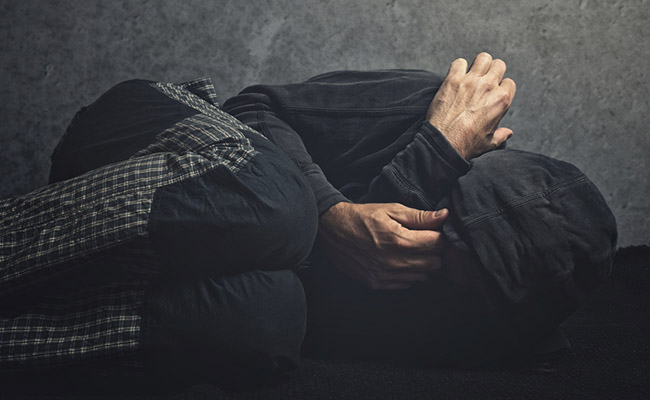Codeine Abuse – Codeine is a very commonly used opiate drug, but what needs to be considered is: What is codeine use potentially leading to?
Who uses it?
Those who suffer from mild to moderate pain those who have pain which is not easing with the use of general painkillers.
Your doctor can prescribe it in a pure form, or it is available from a pharmacy in lower doses when combined with thing such as paracetamol, aspirin or ibuprofen.
If you are taking over the counter (OTC) medicines for coughs and colds there is a good chance that low concentrations of codeine will be contained in such formulas.
If you have any concerns relating to the make-up of any OTC medicine it is very important that you discuss these fully with your qualified pharmacist. They should clearly explain what is contained and what effects are possible. Women who are pregnant should be particularly cautious in this respect.
What is codeine beneficial for?
The obvious benefit is pain relief. Many people suffering from pain may have tried several different painkillers without receiving the required pain relief. Codeine can help to relieve such pain. It is also seen as effective for women who suffer heavy period pains.
How does codeine make you feel?
Many users claim it gives them a feeling of well-being, they feel far calmer and more relaxed and often sleepy. Those who are suffering from constant pain may well miss out on quality sleep time due to the distraction of such pain, so this relief will certainly be welcomed.
So, what is the problem?
Codeine Abuse – The real problem with codeine is that the body can quickly become tolerant of this drug. While the first stage of usage may be at relatively low doses, many users find that to gain the same effect over time that their body demands more.
As doses increase to get the same effect, the body continues to tolerate, but once again will eventually requires more.
What is codeine use potentially leading to?
Many users of codeine find that they are taking greater amounts to get the same feelings of ‘well-being’. This often leads down a dangerous path and tempts them to search for stronger, more effective, and very importantly, more addictive drugs such as hydrocodone or oxycodone.
Once a user takes this route it is a downward spiral to dependence and addiction. If you find yourself in this situation it is vitally important that you seek professional help.
While many make their doctor the first port of call it is important to understand that rehabilitation centres, or luxury rehab resorts as they are often called can offer most help. We will touch on such establishments later in the piece, but let us first consider:
What is codeine from a negative point of view?
Codeine Abuse – Users often complain of feeling nauseous, suffering from constipation, itchiness and bouts of sweating.
They also suffer mood swings that are far more pronounced than usual and many generally feel lazy. While such negative feelings can affect the mind and leave a user feeling low there are health problems which must be taken into account.
This drug can lower your blood pressure and make normal breathing more difficult. In extreme cases you may stop breathing altogether. This is known as “respiratory arrest”.
You must also be aware that by mixing too much of this drug with others that also work to suppress breathing is leaving you wide open to potentially serious problems.
Such a mix will greatly increase your risk of overdosing and in extreme cases can be fatal. Drugs to be avoided in such a mix include, but are certainly not limited to; other opiate drugs, valium and alcohol.
What is codeine from a physical dependence/addiction viewpoint?
Physical dependence on codeine is a common trait amongst regular users. Over time it is likely to produce cravings and leave the user with a strong desire to continue regular and increased doses of the drug.
Please do not believe anything you have heard from other users or unauthorized sources in terms of addiction. With Codeine abuse the facts are very clear. Codeine is an opiate and opiates are addictive.
Withdrawal symptoms:
Those who are physical dependent or addicted to codeine and try to come off it without long term rehab assistance are in for a rough ride.
While feelings of nausea, goose-bumps, yawning, a runny nose, diarrhoea and a constant feeling of restlessness may not cause undue distress, there will also be anxiety, sleep disturbance, abdominal cramps, muscle spasms and nervous tremors to contend with.
The act of trying to withdraw from codeine on your own is a very admirable one, but as is the case with any serious drug problem you really do need specialist care, a full understanding of your problems and continued counselling to help you overcome what is codeine addiction.
Rehabilitation Services:
What has to be realized is that those dependent or addicted to codeine should not expect such problems to go away overnight. They need long term rehab care. While it is possible to go about this from an outpatient point of view and remain under the supervision of your doctor who you will only see during visits to the surgery, the inpatient rehab options open to you are felt to be far more effective.
By opting to go to a Rehabilitation Centre, or a Rehab Resort you are giving yourself an advantage from the get-go. Codeine Abuse is beatable.
These establishments are completely geared to offer the support, encouragement and professional help an addict requires, and while the term ‘rehab resort’ may sound prohibitively expensive, those with codeine addiction should look deeper into such options.
They will be pleasantly surprised to find that overseas operations are far cheaper than the same treatment in their own country. Asia Rehab resorts are an excellent point in case.
Two other huge advantages are that an addict will leave their own, often sterile environment and the distractions this brings for an exotic, relaxed setting in surroundings that are ideally suited when it comes to giving them the best chance of beating their addiction.
Just as importantly the waiting list for such Residential Rehabilitation Resorts is very often far more acceptable than establishments in your own country. If you have summoned up the resolve to do something about your problem you want to begin treatment quickly.
To be put on a ‘waiting list’ is a surefire way to dissolve that resolve and continue the unwanted quest of further understanding what is codeine use leading to.














